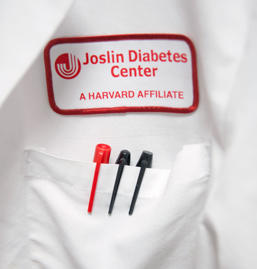Obesity and type 2 diabetes (T2D) are leading global health threats. Innovative multi-pronged approaches are needed to combat both epidemics. Many risk factors for obesity and T2D – beyond genetics – are present before birth, reflecting the influence of environmental factors on germ cells and on the developing infant. For example, parental obesity or diabetes, prenatal undernutrition, and both low and high birth weight, are linked to offspring’s obesity and T2D risk later in life. Such prenatal exposures increase obesity risk not only in the individual exposed to the stressor, but also in their offspring. The result is a vicious cycle of risk to subsequent generations, further impacting population health:

The concept that the perinatal environment shapes childhood chronic diseases has already been incorporated into obstetric guidelines, which call for mothers to attain a healthy pre-pregnancy BMI, limit excess gestational weight gain, and maintain glucose levels within a strict range, to lessen childhood obesity and diabetes risk. Whether similar recommendations should apply to fathers before conception is unclear. However, mounting evidence demonstrates that fathers can transmit obesity and diabetes risk to their offspring. While genetic factors are important, additional non-genetic impacts of paternal metabolism have been demonstrated both in rodent models and in humans. These include changes to DNA such as DNA methylation – which does not change the sequence of DNA, but how it is transcribed or “read.” Likewise, changes in small RNA molecules which do not code for protein can also change how the genome is “read.” Paternal metabolism can influence epigenetic marks in sperm, and these can impact gene expression and development in the offspring.
Importantly, sperm epigenetic marks may be reversible, presenting a novel approach and untapped opportunity for multigenerational prevention of metabolic disease. For example, exercise training in healthy men for 3 months yielded robust changes in sperm DNA methylation. Similarly, sperm DNA methylation and non-coding RNA abundance are changed in obese men undergoing bariatric surgery. The concept that epigenetic marks in sperm are reversible is further supported by experimental data from our group at Joslin showing that interventions to improve health in male mice prior to breeding, including exercise and pharmacological lowering of glucose levels, result in reduction in obesity, glucose tolerance and metabolic syndrome in offspring.
Our current focus in the lab, supported by an NIH R01 grant, is identifying the specific epigenetic mechanisms responsible for paternally-mediated transmission of metabolic disease from one generation to the next, in both animal models and clinical studies. We are very excited about the possibility that interventions before conception which improve health of males may reduce metabolic disease in offspring!
